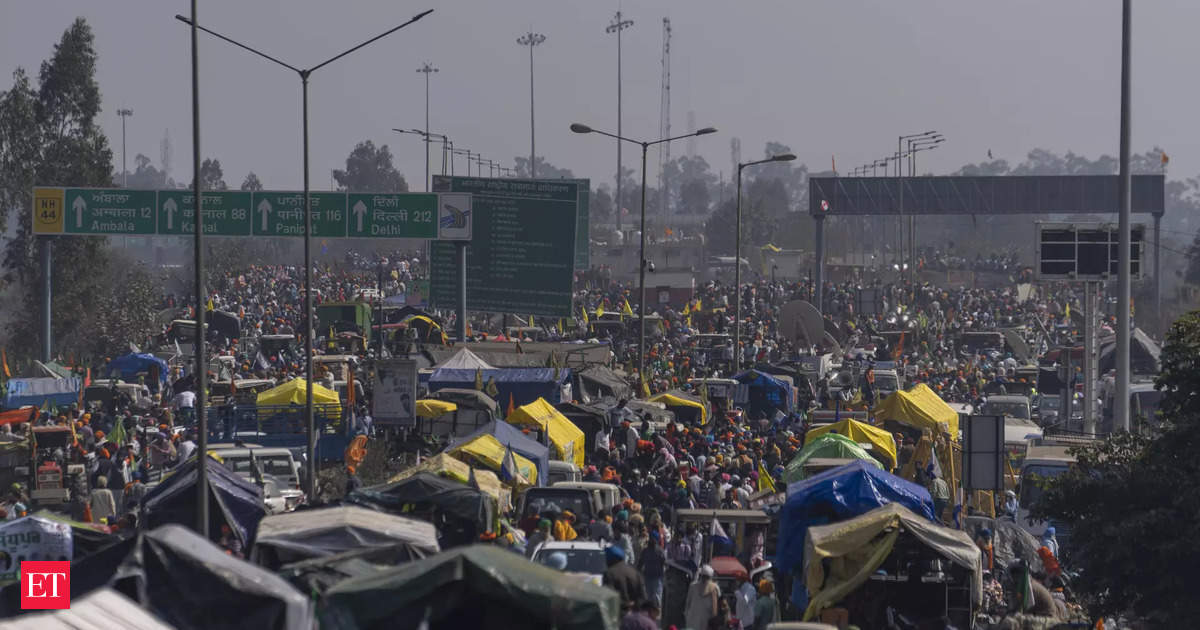Farmers in India, particularly those from Punjab and Haryana, have been expressing their restlessness and frustration after several rounds of failed talks with the central government. The farmers have been protesting against the three controversial farm laws passed by the government in September 2020. Despite numerous discussions and negotiations, a consensus has not been reached between the farmers and the authorities. The failure of talks has heightened the agitation among the farmers, resulting in increased tensions and concerns over the future of agriculture in the country.
The farmers’ agitation, also known as the ‘Dilli Chalo’ movement, began in November 2020 when thousands of farmers marched towards New Delhi to protest against the new agricultural laws. They demanded the repeal of the laws, citing concerns about their impact on their livelihoods and the overall welfare of the farming community. The protesters argued that the new laws would favor large corporations and undermine the traditional agricultural system.
The central government has held multiple rounds of talks with farmer representatives to address their concerns and find a resolution. However, these talks have been largely unsuccessful, with both sides unable to reach a consensus. The stalemate has further increased tensions and skepticism among the farmers, who continue to demand the complete repeal of the farm laws.
The failure of talks has also led to a surge in protests and demonstrations by farmers across different parts of the country. In addition to the ongoing protests in Delhi, farmers in other states have also started organizing rallies and marches to express their solidarity with the protesting farmers and demand justice. These protests have witnessed strong participation from various farmer unions and organizations, further intensifying the pressure on the government to address the concerns of the farming community.
The restlessness among the farmers is not only rooted in their opposition to the farm laws but also their sense of injustice. Many farmers believe that their voices have been ignored, and their demands for a better and more inclusive agricultural system have been disregarded. The failure of talks has deepened their grievances and further eroded their trust in the government’s ability to protect their interests.
The unresolved situation and the restlessness among farmers pose a significant challenge to the central government. It highlights the urgent need for effective dialogue and a genuine effort to understand and address the concerns of the farming community. As the protests continue and tensions escalate, finding a mutually agreeable solution becomes increasingly crucial to restore peace and stability in the agricultural sector.











